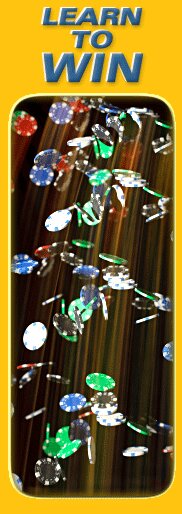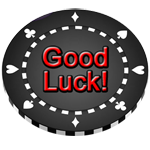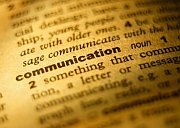Blackjack Decisions Count
by Frank Scoblete
This lesson is about Blackjack Decisions at Learn to Play Blackjack and includes the Lucky 13 Simple Strategy.
While blackjack has been written about as the best possible casino game to play if you know what you are doing, it is one of the worst games to play if you don’t make the right decisions. Casinos win more money at wrong decisions than they do at any other table game.
Blackjack decisions have a dramatic impact on the players’ results. Whether you win or lose is not strictly a function of good or bad luck.
A player who makes good blackjack decisions (good is defined as one who plays Basic Strategy) plays against a house edge of approximately one-half percent in multiple-deck games. And what does a bad player face?
Most players are rated as playing against a two percent casino edge for comping purposes. The fact is that most players are probably playing against edges of three to six percent based on my observations at the tables. Another consideration that makes blackjack a dangerous game for the unwary and unwise is the fact that it is a relatively fast casino game, with anywhere from 60 to 100 decisions per hour.
That two, three, four or more percent is working on a lot more money than it would at games such as Pai Gow poker, Let It Ride or roulette, which are relatively slow games.
For example, most readers are probably aware that blackjack decisions of splitting tens is a no-no. Here’s why. First, let us take the most vulnerable dealer hand, 16, and see what happens when we split our 10s.
For every $100 bet on your 20 composed of two ten-valued cards in the six and eight-deck games, you will win approximately $57 if you split them. Not bad?
Well , you will win approximately $70 if you stand with your 20! That’s a big difference. And if you split your two ten-valued cards against the dealers 10 upcard (yes, I have seen players do this), you will now win five dollars for every $100 bet in this situation from an expected $56 dollars had you stood on your 20. That’s a huge difference.
Here’s another example of how the proper blackjack decisions can affect your monetary expectations. All casinos I'm familiar with offer insurance.
If the dealer is showing an ace, you can make a bet that is up to half your original wager that the dealer will indeed have a ten-valued card under his ace and therefore a blackjack. (Whenever a dealer shows an ace she will call out: “Insurance!” and give players the opportunity to make this bet.) The insurance bet pays off at 2-1.
At first this seems like an attractive proposition -- after all the dealer has a pretty good chance to have that ten-valued card as there are four ten-valued cards for every 13 cards in the deck. And the casino is paying you two to one if you win the wager! But hold it a moment. If there are four ten-valued cards for every 13 cards, that means there are nine non-ten-valued cards - cards that will make you lose your insurance bet. So let’s see how that blackjack decisions works.
Let’s say that you are betting $20 per hand.
Thus, your insurance bet will be $10. You win four times out of 13 for a total win of eighty dollars. However, you lose nine times for a total loss of $90.
That’s a ten dollar difference. If you divide the 13 decisions into the 1 unit loss (or $130 bet into $10), you get an edge for the casino of 7.69 percent! You can expect to lose $7.69 for every $100 bet in this situation. That is some big edge and that is why insurance is not the way to go.
Still, here is a common mistake that many players make.
The dealer is showing an ace and asks if you want insurance.
You have a hand composed of two ten-valued cards. You want to make sure that you win that hand, which is the second strongest hand in blackjack. So you insure. Simple logic tells us that if you have two ten-valued cards in your hand, you have increased the dealer’s chance of not having a ten-valued card under his ace!
Yet, many players will give the casino an even greater edge over them in this situation because they erroneously think they are improving their chances to win by insuring when in fact they are increasing their chances to lose.
The key is to make the right blackjack decision every time and thus reduce the house edge. In short, the above examples show us clearly that the decisions blackjack players make affect their chances for success.
I have created a much simpler version of basic strategy - called The Lucky 13 - that, if followed, will reduce the house edge to below one percent.
Frank Scoblete’s Lucky 13 Blackjack Decisions: A Simple Basic Strategy
Always split aces.
Always split eights.
Always stand when you have 17 or more.
Always hit your 12 through 16 when the dealer has an upcard of 7 or more.
Always hit your 12 against a dealer upcard of 2 or 3.
Always stand on your 12 against a dealer’s 4 through 6.
Always stand on your 13 through 16 against a dealer upcard of 2 through 6.
Always hit hand totals of 11 or less, no matter how many cards compose them, against all dealer upcards.
Always double on two-card totals of 11 when dealer has upcard of 10 or lower.
Always double on two-card totals of 10 when dealer has upcard of 9 or lower.
Always stand on your hands of A7, A8, A9 against all dealer upcards.
Always hit on your hands of A2, A3, A4, A5, A6 against all dealer upcards.
Never take insurance.
Blackjack Decisions is followed by Side Bets
OR
Return to Learn to Play Blackjack Program
GT is attentive about getting the word out about our free programs, lessons and add-ons offered, however, we ask your assistance and consideration in promoting us.
Click link below that reads, "Enjoy this page? Please pay it forward. Here's how..." to add a link to your site, blog or personal page.
Tips, Terms & Wins
Blackjack Side Bets: 21+3
This game combines a Three Card Poker side bet with blackjack. Essentially the player makes a side bet that his first two dealt cards plus the dealer’s upcard will be a flush, straight, straight flush or three of a kind.
If so, the side bet pays 9 to 1.





